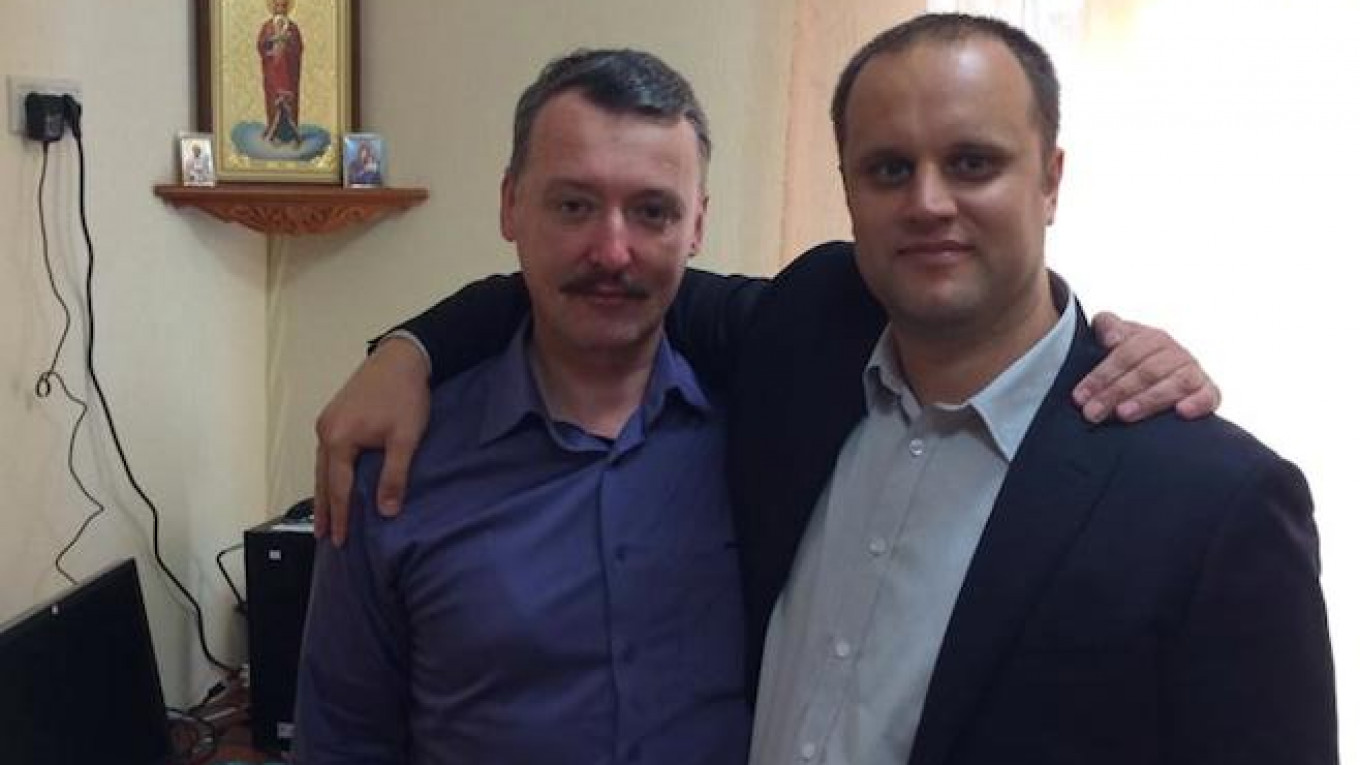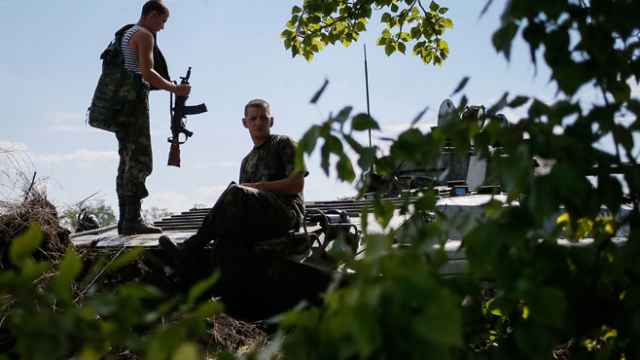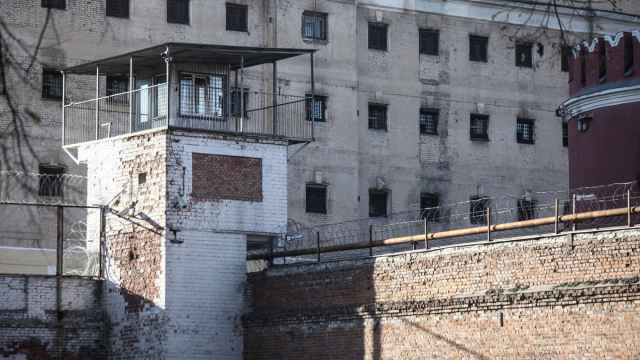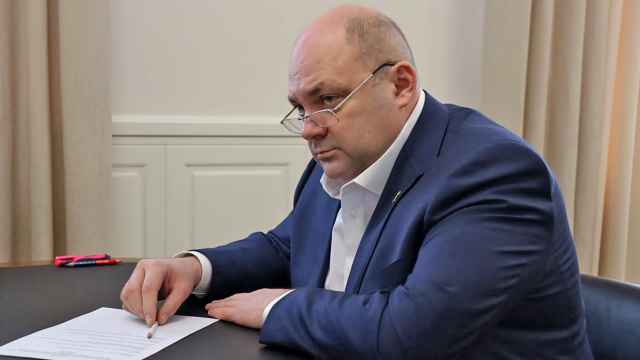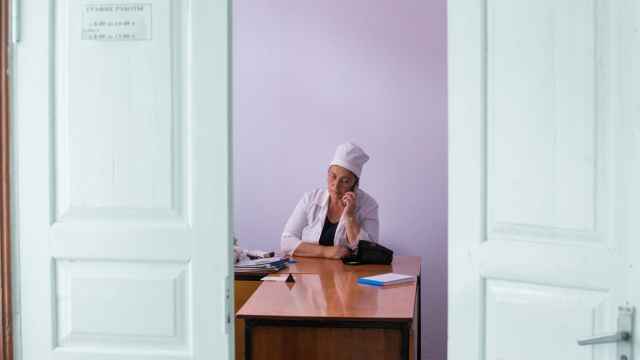Though the Ukrainian separatists bill themselves as "anti-fascists," they accepted a self-proclaimed fascist from Italy into their army, a retired rebel leader confirmed Thursday.
"He says, 'they're the wrong American kind of fascists, and I'm the right, anti-American kind," Pavel Gubarev, a former self-proclaimed "people's governor" of the Donbass territory in eastern Ukraine, cited the unnamed Italian as saying, Slon.ru reported.
The man represents a "normal, non-fringe … fascist party," said Gubarev, without elaborating.
"In Europe … fascism has no negative connotations, only Nazism does," Gubarev, who was reportedly a member of the neo-Nazi Russian National Unity movement, went on to claim.
The pro-Russian separatists in eastern Ukraine have built their cause for a five-month war around anti-fascist slogans and rhetoric.
The insurgents have called the government in Kiev a "fascist junta" and even paraded Ukrainian army captives in the streets of the city of Donetsk in August in a march imitating the 1944 parade of captured Wehrmacht soldiers across Moscow, complete with roadsweepers following the columns to "cleanse" the streets.
A number of volunteer units on the Ukrainian government side are composed of local ultranationalists joined by a handful of European neo-Nazis, including from Italy.
The rebels, meanwhile, comprise many Russian traditionalists dreaming of restoring Russia to a superpower, on either Soviet or pre-revolutionary templates.
Gubarev, 31, was a rare Ukrainian national in the rebel leadership.
He unexpectedly stepped down in September along with many other rebel leaders, a move many analysts attributed to pressure from Moscow, which allegedly wanted control of the insurgency as it increased its supply of troops and military equipment to them, a charge that Russian officials have repeatedly denied.
A Message from The Moscow Times:
Dear readers,
We are facing unprecedented challenges. Russia's Prosecutor General's Office has designated The Moscow Times as an "undesirable" organization, criminalizing our work and putting our staff at risk of prosecution. This follows our earlier unjust labeling as a "foreign agent."
These actions are direct attempts to silence independent journalism in Russia. The authorities claim our work "discredits the decisions of the Russian leadership." We see things differently: we strive to provide accurate, unbiased reporting on Russia.
We, the journalists of The Moscow Times, refuse to be silenced. But to continue our work, we need your help.
Your support, no matter how small, makes a world of difference. If you can, please support us monthly starting from just $2. It's quick to set up, and every contribution makes a significant impact.
By supporting The Moscow Times, you're defending open, independent journalism in the face of repression. Thank you for standing with us.
Remind me later.


